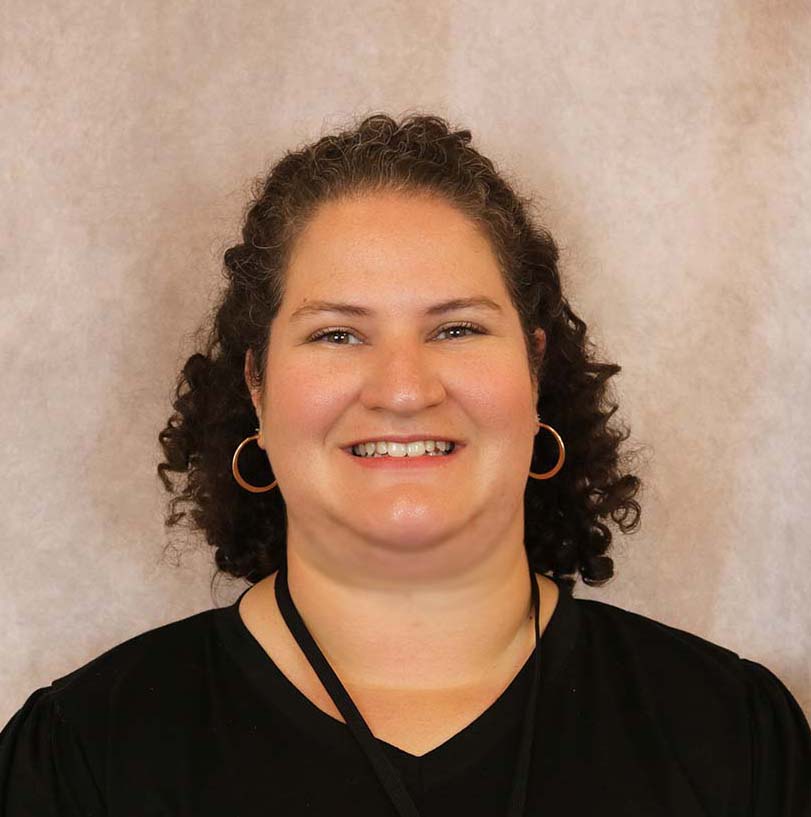Caleb goes from dreading work to feeling successful and accomplished with support from Extended Employment program

Program’s employment counselors provide workplace support and long-term assistance to people with disabilities
By Annie Berg • Lead Employment Counselor
Caleb loves how he feels after he leaves work – accomplished, connected, part of something bigger than himself. However, this wasn’t always the way he felt after a long day at the office. Caleb struggles with anxiety and depression and just a year ago was diagnosed with autism. He was having issues with prioritizing tasks and was falling behind on projects.
He tried to talk with his supervisor, but felt like he was talking in circles. To make things worse, his supervisor said he should know how to do his job by now and that task management was part of his job responsibilities.
Defeated, Caleb knew he needed to do something before his supervisor put him on a performance improvement plan or he lost his job. He searched the internet for help and one evening came across a program called Extended Employment.

“I don’t know if this is right for me. I don’t need that much help,” he said to a friend that weekend. Luckily, his friend had heard of JFCS. “I went to an event at JFCS one time and they talked about how they help people with disabilities that need support with their jobs,” they said. “It couldn’t hurt to give them a call.”
That phone call changed everything for Caleb. He began meeting with an employment counselor on his lunch break at the corner coffee shop twice a month. They discussed areas where Caleb was struggling, such as communicating with his supervisor, as well as time and task management. Together, they developed a prioritization strategy that helped Caleb organize his tasks in a way that complimented his workstyle and got him back on track with completing projects.
Caleb’s employment counselor even worked with his supervisor to discuss tasks that motivated him and de-motivated him. Now, if Caleb’s supervisor thinks he is struggling with a task, the supervisor can give Caleb a motivating task before asking him to circle back to the task he struggled with. Finally, Caleb feels like he can take on whatever comes his way in his work life, leaving the feeling of drowning in self-doubt in the past.
Getting started in JFCS’ Extended Employment program is straightforward. Documentation of a qualifying diagnosis must be provided and barriers to employment will be determined. Participants must commit to two meetings per month with an employment counselor and provide verification of hours worked.
I’ve described how the program helped Caleb, but there are so many more ways that employment counselors can provide workplace support and long-term assistance. Employment counselors at JFCS strive to meet clients where they are in the moment using a holistic approach to develop strategies to help not only the client, but also the employer. Work relationships are not a one-way street. Whether a client chooses to disclose their disability to their employer or not, employment counselors can help advocate on a client’s behalf or coach them to effectively advocate for themselves.
Extended Employment clients tend to build long-term partnerships with their employment counselor. Clients find that having an employment counselor in their corner can provide stability for years to come. One client said, “Extended Employment is the best thing that has helped me in my work life!”
If this seems like a service that could benefit you or someone you know, please reach out to see if the program is a good fit. Another client described the program and JFCS as, “A great, supportive organization that assists with several facets of your life and helps you successfully navigate through the trenches and hills we encounter in life.”
For more information on JFCS’ Extended Employment program, please call Cindy Uran Woodruff at 952-417-2104.
